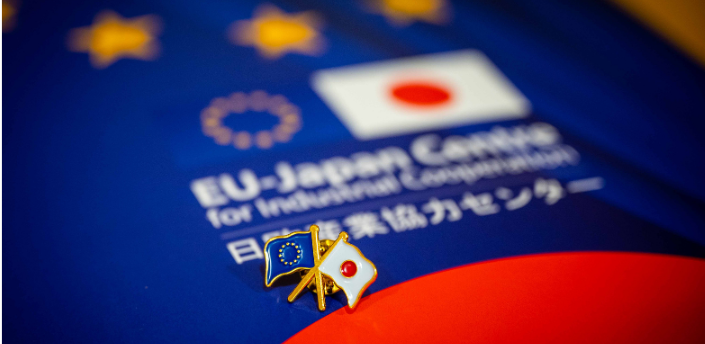Japan and the European Union hope to create a framework for cooperation on development of advanced materials.
Sides to launch collaborative plan in April, with eye on lowering China dependence
BRUSSELS -- Japan and the European Union plan to formally collaborate on development of advanced materials in such fields as chips and EV batteries, in part to reduce their dependence on China, Nikkei has learned.
The plan to create a framework for cooperation in April was revealed by Iliana Ivanova, the European Commission's commissioner responsible for innovation and research, in an interview with Nikkei.
"It makes a lot of sense to expand cooperation as like-minded partners and pursue collaborative opportunities under our respective research and innovation programs, in a true spirit of cooperation and reciprocity," she said.
"Japan and the EU are still leading globally in advanced materials innovation," she added, noting that investments in the industry totaled 19.8 billion euros ($21.4 billion at current rates) in the EU and 14 billion euros in Japan in 2020.
"Having an enhanced dialogue to discuss common areas of interest and possible collaboration could only be of mutual benefit," she said.
Under what has been tentatively called the Dialogue on Advanced Materials, the sides will launch regular discussions on proposals for collaboration, mainly between secretariats. Institutions in Japan and Europe conducting research in cutting-edge materials will also be involved.
The EU requested the sides work together. Ivanova noted that collaboration will likely include materials for renewable energy, mobility, construction and electronics.
One specific area envisioned is the development of sodium-ion batteries, which are seen as a promising next-generation power source for electric vehicles. These batteries do not use rare metals that China holds a grip over, and they can be produced at lower cost than conventional batteries. With China ahead in the development of sodium-ion batteries, the EU hopes to make strides in this area as it anticipates growing demand on the back of the shift to EVs.
The EU also hopes to tap Japan's knowledge in metallic nanoparticles, which can improve the conversion efficiency of solar panels. Nanoparticles that can help smartphones save energy are also among materials on the table.
Going forward, the EU intends to focus its research spending on advanced materials, with substantial support to be provided for development and mass production.
Ivanova mentioned that she hopes Japan and the EU can work together on creating international standards for cutting-edge materials.
"I would also like to work together on the development of standard methods for safety assessments of nanomaterials based on nano-informatics (with digital modelling techniques and tools). Such standard methods are also discussed within OECD to ensure safety and environmental management in high-tech applications," she said.

